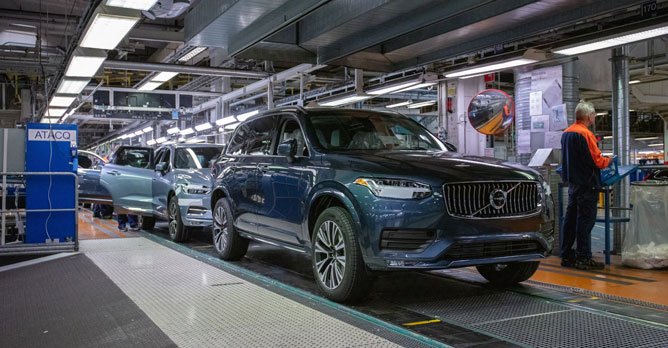Volvo's Torslanda plant goes climate-neutral
27 May 2021|979 views
Volvo Cars has announced that its car manufacturing plant in has reached fully climate-neutral status.
This makes Torslanda the second plant in its overall manufacturing network to reach this status, after the Skovde engine plant in Sweden became climate neutral in 2018.

The Torslanda plant, the company's oldest, has been powered by climate-neutral electricity since 2008. It now also has climate-neutral heating. Half of the plant's heating comes from biogas, while the other half is predominantly sourced from district heating through industrial waste heat.
Apart from becoming climate neutral, Torslanda also constantly reduces the amount of energy it uses. Targeted improvements in its operations during 2020 resulted in annualised energy savings of almost 7,000MWh, equal to the annual energy usage of more than 450 Swedish family homes.
In the coming years, Volvo Cars plans to make further efficiency upgrades to the plant's lighting and heating systems, among other things, which should result in additional annual energy savings of around 20,000MWh by 2023. These energy savings are part of a wider ambition for Volvo Cars to reduce energy usage per car produced in its manufacturing network by 30% in 2025.
Volvo Cars has announced that its car manufacturing plant in has reached fully climate-neutral status.
This makes Torslanda the second plant in its overall manufacturing network to reach this status, after the Skovde engine plant in Sweden became climate neutral in 2018.

The Torslanda plant, the company's oldest, has been powered by climate-neutral electricity since 2008. It now also has climate-neutral heating. Half of the plant's heating comes from biogas, while the other half is predominantly sourced from district heating through industrial waste heat.
Apart from becoming climate neutral, Torslanda also constantly reduces the amount of energy it uses. Targeted improvements in its operations during 2020 resulted in annualised energy savings of almost 7,000MWh, equal to the annual energy usage of more than 450 Swedish family homes.
In the coming years, Volvo Cars plans to make further efficiency upgrades to the plant's lighting and heating systems, among other things, which should result in additional annual energy savings of around 20,000MWh by 2023. These energy savings are part of a wider ambition for Volvo Cars to reduce energy usage per car produced in its manufacturing network by 30% in 2025.
Latest COE Prices
July 2025 | 1st BIDDING
NEXT TENDER: 23 Jul 2025
CAT A$101,102
CAT B$119,600
CAT C$66,689
CAT E$118,500
View Full Results Thank You For Your Subscription.



















